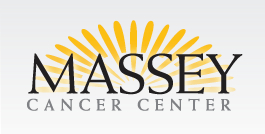Sorafenib With or Without Paclitaxel and Carboplatin in Treating Patients With Recurrent Ovarian Cancer, Primary Peritoneal Cancer, or Fallopian Tube Cancer
| Status: | Completed |
|---|---|
| Conditions: | Ovarian Cancer, Cancer, Cancer |
| Therapuetic Areas: | Oncology |
| Healthy: | No |
| Age Range: | 18 - Any |
| Updated: | 9/16/2018 |
| Start Date: | August 2004 |
| End Date: | August 2011 |
A Phase II Trial Of BAY 43-9006, A Novel Raf Kinase Inhibitor Plus Paclitaxel/Carboplatin In Women With Recurrent Platinum Sensitive Epithelial Ovarian, Peritoneal Or Fallopian Tube Cancer
Sorafenib may stop the growth of tumor cells by blocking the enzymes necessary for their
growth and by stopping blood flow to the tumor. Drugs used in chemotherapy, such as
paclitaxel and carboplatin, work in different ways to stop tumor cells from dividing so they
stop growing or die. Giving sorafenib together with chemotherapy may kill more tumor cells.
This randomized phase II trial is studying how well giving sorafenib together with paclitaxel
and carboplatin works in treating patients with recurrent ovarian cancer, primary peritoneal
cancer, or fallopian tube cancer. (Sorafenib only group closed as of 10/10/2008).
growth and by stopping blood flow to the tumor. Drugs used in chemotherapy, such as
paclitaxel and carboplatin, work in different ways to stop tumor cells from dividing so they
stop growing or die. Giving sorafenib together with chemotherapy may kill more tumor cells.
This randomized phase II trial is studying how well giving sorafenib together with paclitaxel
and carboplatin works in treating patients with recurrent ovarian cancer, primary peritoneal
cancer, or fallopian tube cancer. (Sorafenib only group closed as of 10/10/2008).
PRIMARY OBJECTIVES :
I. Compare the progression-free and overall survival rate of patients with recurrent
platinum-sensitive ovarian epithelial, primary peritoneal, or fallopian tube cancer treated
with sorafenib with or without carboplatin and paclitaxel. (Arm I [sorafenib only] closed to
accrual 10/01/2008) II. Evaluate the response rate and time to disease progression in
patients treated with these regimens.
OUTLINE: This is a multicenter study. Patients are stratified according to performance status
and participating center.
ARM I (closed to accrual 10/01/2008): Patients receive oral sorafenib twice daily on days
1-28.Courses repeat every 28 days in the absence of disease progression or unacceptable
toxicity. Patients with disease progression crossover to arm II.
ARM II: Patients receive oral sorafenib twice daily on days 2-19. Patients also receive
carboplatin IV over 30 minutes and paclitaxel IV over 3 hours on day 1. Courses repeat every
21 days in the absence of disease progression or unacceptable toxicity.
I. Compare the progression-free and overall survival rate of patients with recurrent
platinum-sensitive ovarian epithelial, primary peritoneal, or fallopian tube cancer treated
with sorafenib with or without carboplatin and paclitaxel. (Arm I [sorafenib only] closed to
accrual 10/01/2008) II. Evaluate the response rate and time to disease progression in
patients treated with these regimens.
OUTLINE: This is a multicenter study. Patients are stratified according to performance status
and participating center.
ARM I (closed to accrual 10/01/2008): Patients receive oral sorafenib twice daily on days
1-28.Courses repeat every 28 days in the absence of disease progression or unacceptable
toxicity. Patients with disease progression crossover to arm II.
ARM II: Patients receive oral sorafenib twice daily on days 2-19. Patients also receive
carboplatin IV over 30 minutes and paclitaxel IV over 3 hours on day 1. Courses repeat every
21 days in the absence of disease progression or unacceptable toxicity.
Inclusion Criteria:
- Diagnosis of ovarian epithelial, primary peritoneal, or fallopian tube cancer
- Recurrent disease
- Must have received a prior platinum-based regimen
- Platinum-sensitive (treatment-free interval > 6 months)
- No more than 2 prior chemotherapy regimens
- Measurable disease
- At least 1 unidimensionally measurable lesion >= 20 mm by conventional techniques OR
>= 10 mm by spiral CT scan
- Not in a prior irradiation field
- No known brain metastases
- Performance status:
- ECOG 0-2 OR
- Karnofsky 80-100%
- Life expectancy:
- More than 12 weeks
- Hematopoietic:
- Absolute neutrophil count >= 1,500/mm3
- Platelet count >= 100,000/mm3
- Hemoglobin >= 9 g/dL
- No bleeding diathesis
- Hepatic:
- Bilirubin < 1.5 times upper limit of normal (ULN)
- AST or ALT =< 2 times ULN
- No history of allergic reaction attributed to compounds of similar chemical or
biological composition to sorafenib or other agents used in the study
- Patients who have had a reaction to a taxane or a platinum and have not yet been
rechallenged may undergo a desensitization regimen on study
- No hypersensitivity to paclitaxel or drugs using the vehicle Cremophor El:
- Prior hypersensitivity reaction to paclitaxel allowed provided rechallenged
successfully
- Renal:
- Creatinine < 2 mg/dL
- Cardiovascular:
- Abnormal cardiac conduction (e.g., bundle branch block or heart block) allowed if
stable for the past 6 months
- No symptomatic congestive heart failure
- No uncontrolled hypertension
- No cardiac arrhythmia
- No unstable angina pectoris;
- No myocardial infarction within the past 6 months
- Negative pregnancy test
- Fertile patients must use effective contraception
- Adequate intestinal function
- No concurrent requirements for IV hydration or nutritional support
- No active or ongoing infection
- No psychiatric illness or social situation that would preclude study compliance
- No other concurrent uncontrolled illness
- No other invasive malignancy with the past 5 years except nonmelanoma skin cancer
- More than 4 weeks since prior chemotherapy (6 weeks for nitrosoureas or mitomycin) and
recovered
- More than 3 weeks since prior hormonal therapy
- More than 4 weeks since prior radiotherapy and recovered
- No prior sorafenib
- No prior anticancer therapy that contraindicates study therapy
- No concurrent cytochrome P450 enzyme-inducing antiepileptic drugs (phenytoin,
carbamazepine, or phenobarbital), rifampin, or Hypericum perforatum (St. John's wort)
- No concurrent combination antiretroviral therapy for HIV-positive patients
- No concurrent therapeutic anticoagulation therapy
- Concurrent prophylactic low-dose warfarin allowed for maintenance of venous or
arterial access devices
- No other concurrent anticancer therapies
- No other concurrent investigational agents
- Not pregnant or nursing
We found this trial at
5
sites
Lake University Ireland Cancer Center Lake Health is a private, not-for-profit leader in community health...
Click here to add this to my saved trials
401 College Street
Richmond, Virginia 23298
Richmond, Virginia 23298
(804) 828-0450

Virginia Commonwealth University Massey Cancer Center Founded in 1974, VCU Massey Cancer Center is a...
Click here to add this to my saved trials
Case Western Reserve Univ Continually ranked among America's best colleges, Case Western Reserve University has...
Click here to add this to my saved trials
Click here to add this to my saved trials
Click here to add this to my saved trials

